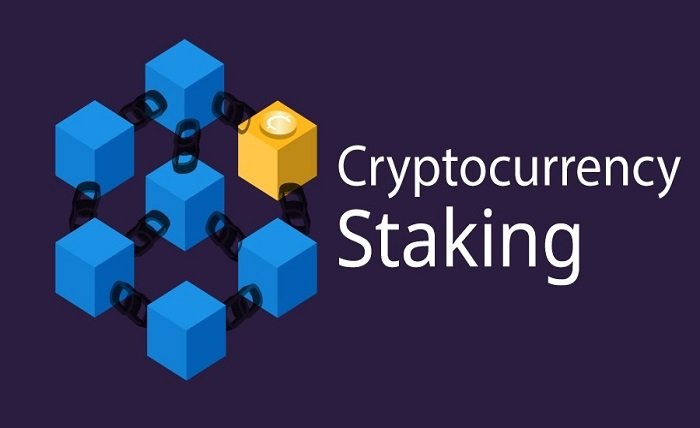Staking Crypto: Maximizing Your Investment Potential

In recent years, the world of cryptocurrency has witnessed exponential growth, offering numerous opportunities for investors to explore. One such opportunity is staking crypto, a process that enables users to earn rewards by holding and validating transactions on a blockchain network. In this article, we will delve into the concept of staking crypto, its benefits, and how you can get started with it. Whether you’re a seasoned investor or a newcomer to the crypto space, understanding staking can be instrumental in maximizing your investment potential.
What is Staking Crypto?
Staking crypto refers to the act of holding and “staking” your cryptocurrency in a digital wallet to support the operations of a blockchain network. By doing so, you participate in the network’s consensus mechanism and help validate transactions, maintain network security, and achieve distributed consensus.
Read more about: i-studyinfo
How Does Staking Crypto Work?
When you stake your crypto, you lock a certain amount of your holdings in a wallet designated for staking. This locked amount serves as collateral, ensuring your commitment to the network. In return for your contribution, you receive staking rewards, typically in the form of additional cryptocurrency tokens.
Read more about: lebossduturf
Different Types of Staking
Proof of Stake (PoS)
Proof of Stake is a consensus mechanism where validators are chosen to validate new blocks based on the number of tokens they hold and are willing to “stake” as collateral. The higher the stake, the higher the chances of being selected to validate a block and earn rewards.
Read more about: ssologin
Delegated Proof of Stake (DPoS)
Delegated Proof of Stake is a variation of the PoS mechanism. Here, token holders can delegate their stake to a trusted third party, known as a delegate or validator, who will represent their interests in the network and validate transactions on their behalf.
Read more about: nextexam
Masternodes
Masternodes are another form of staking, typically associated with specific cryptocurrencies. Masternode operators provide additional network functionalities and services and, in return, earn staking rewards for their contribution.
Benefits of Staking Crypto
Passive Income Generation
Staking crypto offers an attractive opportunity for passive income generation. By staking your holdings, you can earn regular rewards in the form of additional tokens without actively participating in trading or mining activities.
Read more about: revolver-news
Increased Network Security
Staking plays a vital role in maintaining the security and integrity of blockchain networks. Validators who stake their tokens have a vested interest in ensuring the network’s stability and are economically incentivized to act honestly and follow the established rules.
Read more about: kappa-course
Participating in Governance
Certain staking mechanisms grant token holders the right to participate in the decision-making process of the blockchain network. By staking your tokens, you can exercise voting rights, propose or support network upgrades, and contribute to the governance of the ecosystem.
Choosing the Right Staking Provider
When embarking on your staking journey, it’s crucial to choose a reputable and reliable staking provider. Consider factors such as the provider’s track record, security measures, fees, and user experience. Thoroughly research the available options to make an informed decision.
Read more about: kappa-course
How to Stake Crypto
Selecting a Compatible Wallet
Before staking your crypto, ensure you have a compatible wallet that supports the staking mechanism of your chosen cryptocurrency. Wallets specifically designed for staking usually offer user-friendly interfaces and seamless integration with staking providers.
Acquiring the Desired Cryptocurrency
To stake crypto, you need to acquire the specific cryptocurrency you wish to stake. Visit reputable exchanges to purchase the desired tokens and transfer them to your staking wallet.
Choosing a Staking Pool or Validator
If you opt for staking through a staking pool or validator, carefully evaluate their reputation, performance, and fees. Look for validators with a high uptime, strong community support, and a fair distribution of rewards.
Initiating the Staking Process
Follow the instructions provided by your chosen staking provider to initiate the staking process. Typically, you will need to delegate your tokens or initiate a stake transaction through your wallet.
Best Practices for Staking Crypto
Research and Due Diligence
Before staking your crypto, conduct thorough research about the chosen cryptocurrency, its staking mechanism, and the associated risks. Stay informed about the latest developments, project updates, and security practices.
Diversify Your Staking Portfolio
To mitigate risks, consider diversifying your staking portfolio by staking different cryptocurrencies across multiple networks. This strategy helps protect your investment from potential network-specific issues or market fluctuations.
Stay Informed about Network Upgrades
Stay updated on network upgrades, protocol changes, and potential hard forks. These events can impact the staking process, rewards structure, or token value. Being aware of such developments enables you to make informed decisions and adapt your staking strategy accordingly.
Read more about: lebossduturf
Risks Associated with Staking Crypto
Slashing
Slashing refers to the penalty imposed on validators for malicious behavior or violations of the network’s rules. Validators may have their staked tokens partially or entirely slashed as a consequence, reducing their overall stake and rewards.
Market Volatility
As with any investment, staking crypto involves market risks. The value of the staked tokens may fluctuate, potentially affecting the overall returns and the value of rewards received.
Tax Implications of Staking Rewards
The tax treatment of staking rewards varies across jurisdictions. Consult with a tax professional or accountant to understand the tax implications specific to your region. Reporting your staking rewards accurately ensures compliance withtax regulations and helps you avoid any potential penalties or legal issues.
The Future of Staking Crypto
Staking crypto has gained significant popularity and is expected to continue growing in the future. As blockchain technology evolves and more networks adopt staking mechanisms, we can anticipate increased participation, improved staking protocols, and innovative features that enhance the overall staking experience.
Conclusion
Staking crypto presents a compelling opportunity for investors to earn passive income while actively contributing to the security and governance of blockchain networks. By understanding the concept of staking, choosing the right staking provider, following best practices, and staying informed, you can make informed decisions and maximize your investment potential in the crypto space.





